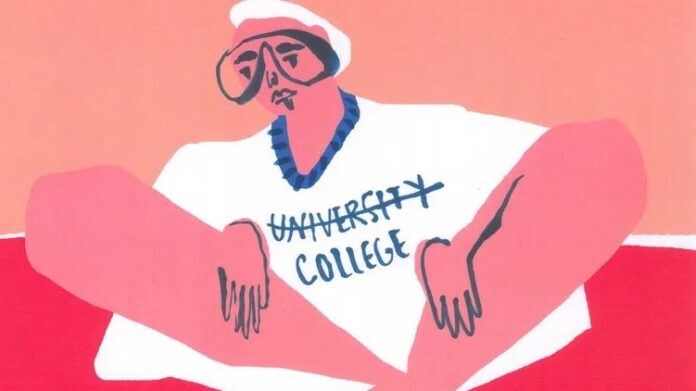It goes without saying that college is hard—but doing it with a chronic illness is much, much harder. All the usual academic and mental health struggles still apply, but with the added fun of additional pain, physical and psychological limitations—and in the case of invisible illnesses, having to constantly justify or prove to classmates, professors, and administration that you’re actually ill. These are all very important and very real parts of being a chronically ill college student, but they are not the subject of this article. Say you have a chronic illness, but you’re managing the pain, depression/anxiety, and weird physical symptoms you might be having well enough, and are determined to still have a college social life. Good for you! However, there’s a lot more planning that goes into having a quasi-normal night out than you might realize, and it can get comically intricate pretty fast.
For example: pills. Depending on the illness, you could be taking something like 20 individual pills worth of prescriptions and supplements sometimes up to three times a day. Some of these will need to be taken with food, on an empty stomach, or can’t be taken together. Even after you’ve figured out what needs to be taken when and how, there remains the alcohol question. College students drink on medications when they’re not supposed to pretty frequently—especially SSRIs and other antidepressants, but there are a few different levels of drugs you’re not supposed to drink on: 1) the ones you’re not supposed to, but that probably aren’t going to hurt you, 2) the ones you’re really not supposed to, but once in a while is probably ok, and 3) the ones you Cannot Under Any Circumstances Drink On Or You Will Die.
People on drugs in the third category are pretty much doomed to go to parties sober here (unless they feel like making the 30 minute drive to a recreational dispensary in New Jersey every once in a while), but for the other two categories it’s just a matter of planning. The ultimate goal of drinking on meds is to not get violently nauseous as soon as you start. After all, the typical college student experience is to throw up after drinking too much, not because you took your antibiotic with a shot of tequila. Step one is to leave about two hours in between when you take your medication and when you actually start drinking. Step two is snacks. Snacks are your best friend. We’re talking toast, oatmeal, cereal, really any carb-based breakfast food is ideal—and there are worse things in life than having breakfast for dinner every weekend.
The second thing to think about is any medical devices or mobility aids you’re supposed to have on you. If you’re able to go without and don’t want to compromise the integrity of your fit by adding compression socks or knee braces, you might just ditch them altogether for a few hours. If they’re non-negotiable, you might try to conceal them with baggy jeans, long-sleeved tops, or conveniently placed accessories. For things like canes, colostomy bags, or other essentials that aren’t so easy to hide, you’d better go all out. Blacklight theme? Grab some neon paint, tape, markers—whatever—and get to work. Stoplight party? Use your medical device to get across your relationship status with the right color customization. Maybe there’s no theme, and you go for stickers or gems to dress it up a little. After all, we have laptop and water bottle stickers for a reason, right? We have these things with us so much that we want to make sure they reflect our personality—medical devices are no different.
And of course, one of the most uncomfortable parts of partying when you’re ill: the “just in case” talk. It’s pretty hard to be spontaneous when you have pills to take on a certain schedule, dietary restrictions to maintain, and a cute tote bag with braces and a blood pressure monitor to keep track of, but one of the most important things is to be honest about your situation to the people you’re with. In case of a medical emergency, you want to make sure your friends can communicate any important information to emergency responders if you aren’t able to. This conversation will definitely bring the vibes down a little, so maybe try and have it before the pregame instead of during. Or, to make it even easier, invest in some medical jewelry that has the important information on it. They even make them with QR codes now so emergency responders can just scan them to see more detailed information about you if you’re unable to give it yourself. It’s impossible to make this conversation fun, but having the important information easily accessible will at least make it short—and you get an accessory out of it!
After all of this, your diseased but determined college student will go out just like anyone else. They might be sober, partying with a cane, or maybe not getting very low when Flo Rida comes on, but gosh darnit they’re out there. It might seem ridiculous to some people to go through all this effort just to get to a frat basement with mediocre music and terrible dancing, especially if it causes physical pain or undo exhaustion. But the thing is, when you’re always exhausted and in pain, sometimes it’s nice to be exhausted and in pain doing something just because it’s what you do in college, not because you have to do it. As the saying (sort of) goes, the college student must have bread, but they must have roses too. And even though it might smell like stale beer and sweat, sometimes a college party is the rose you’re willing to fight for.






















